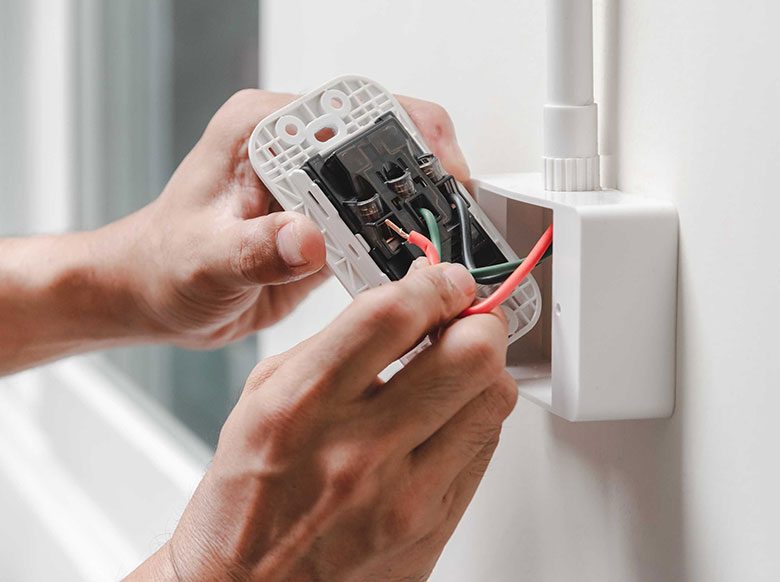It’s just another normal evening. The kettle’s whistling. Your phone is charging. The TV hums softly in the background. Then—everything stops. Silence. Darkness. You fumble for your phone, only to realize the battery’s at 8%. The fridge is off. The air conditioner cuts out. And suddenly, your perfectly ordinary day turns uncomfortable and uncertain.
That’s the moment most people realize what backup power truly means. It’s not just about lights or devices. It’s about safety, comfort, and keeping your routine going while everything else is coming apart. People don’t think about it very much until they’ve been through it. And once they have, they never forget it.
Backup Power Isn’t Only For When Things Go Wrong
Many assume backup power is only for major storms or rare events. The truth is, power outages can happen anytime, often without warning.
Here’s what no one usually tells you:
- Power blackouts are not a concern about what you have planned. They happen during dinner, work meetings, or your kid’s online exam.
- They don’t last just a few minutes. Some last for hours or even days, particularly in the summer and winter when they are busiest.
- It’s not always the weather. Overloaded grids, unexpected failures, and maintenance can pull the plug at any time.
And when they hit, you’re stuck—waiting, sweating, or shivering, hoping things get fixed soon.
The Hidden Cost of Losing Power
It’s not only about being in the dark. Losing power costs more than people think—sometimes in ways they don’t expect.
- Food spoils fast. Refrigerators can’t keep things cold forever. Meats, dairy, and leftovers go bad in just a few hours. That’s money down the drain.
- Electronics suffer. Sudden shutdowns and power surges can fry devices. Repairs aren’t always cheap.
- Work stalls. No power means no Wi-Fi. For remote workers and students, that means missed deadlines, lost time, and unnecessary stress.
- Health equipment stops. Devices like oxygen machines or powered beds stop working. And that’s not just inconvenient—it’s dangerous.
- Home security weakens. Without electricity, alarms and security cameras may go offline, leaving homes vulnerable.
None of this makes headlines. But for the families caught in it, it’s real. And sometimes, it’s overwhelming.
When It’s Not Just About You
Power outages don’t affect only one person. They ripple through households, neighborhoods, and even entire communities. Parents worry about keeping kids safe and comfortable. Small business owners can’t open their doors. Seniors, especially those living alone, are more at risk.
So backup power becomes more than a convenience—it becomes a shared responsibility.
Waiting It Out Isn’t Always an Option
Some folks try to wait out a blackout with candles and flashlights. But there’s only so much that can be done when everything stops functioning.
- No stove. No warm meals.
- No AC or heat. The temperature indoors rises or drops fast.
- No lights. Moving around becomes a guessing game, especially at night.
- No phone charging. You lose connection with the outside world when you need updates the most.
That’s when people start to realize—this isn’t just a pause. It’s a disruption with real consequences.
What Backup Power Actually Does For You
When everything else is unstable, it holds you solid. You don’t lose meals, miss deadlines, or wait in the dark wondering what to do next.
Here’s what reliable backup power means on a day-to-day level:
- You stay connected. Your phone stays charged, the internet works, and communication continues.
- Your food stays safe. No spoiled groceries or frantic rushes to eat everything before it melts.
- You sleep better. Fans, lights, and security systems keep working, even when the grid doesn’t.
- You protect what matters. Medical devices keep running. Refrigerators hum steadily. Kids get to play, eat, and sleep like usual.
And most of all, you stay calm—because you’re not waiting and hoping. You’re ready.
Why Many People Wait—And Regret It Later
It’s easy to push the thought aside. Power loss seems rare. Most days, everything works fine. But that’s exactly what makes it so jarring when it doesn’t.
A lot of people don’t get ready because they’ve never had to deal with the worst-case situation. But if you speak to someone who has, you’ll hear a different narrative. They’ll say they wish they’d done something sooner since they didn’t know how weak they were. It’s not about being too ready; it’s about not getting left behind.
A Few Simple Things That Make a Big Difference
You don’t need an entire bunker or fancy systems. Even small steps toward backup power can help you stay steady when others struggle.
Think about:
- Portable power stations for phones, routers, and small appliances
- Uninterruptible power supplies (UPS) for computers and modems
- Gas or battery-powered generators for larger needs
- Solar-powered battery packs for clean, renewable support
Each of these adds a layer of stability, one plug at a time.
When the Lights Come Back On
Once the power returns, everything seems normal again. But something shifts. You remember the silence. The darkness. The waiting. And you realize how fragile modern comfort can be.
Backup power isn’t flashy. It’s not something to brag about. It’s quiet. Simple. Steady. And that’s what makes it worth anything. It’s what keeps the buzz of daily life running when everything else is silent.
A Quiet Way to Stay Ahead
Most people won’t talk about backup power until they’ve lived through the discomfort of going without it. But those who’ve been there? They don’t wait anymore.
They know the quiet power of being ready—not because they’re afraid, but because they care. About their family. Their time. Their comfort. Their safety. And that choice, made before things go dark, makes all the difference.
Final Thought
Backup power is one of those things you might never need—until you really, really do. And when Champs Electric helps you get a one, you won’t want to be the one saying, “I wish I had.”
Instead, you’ll be the only one in a well-lit room, drinking tea and watching the rain as everyone else on the block waits in the dark. And that quiet hum in the background? That’s the sound of readiness.

